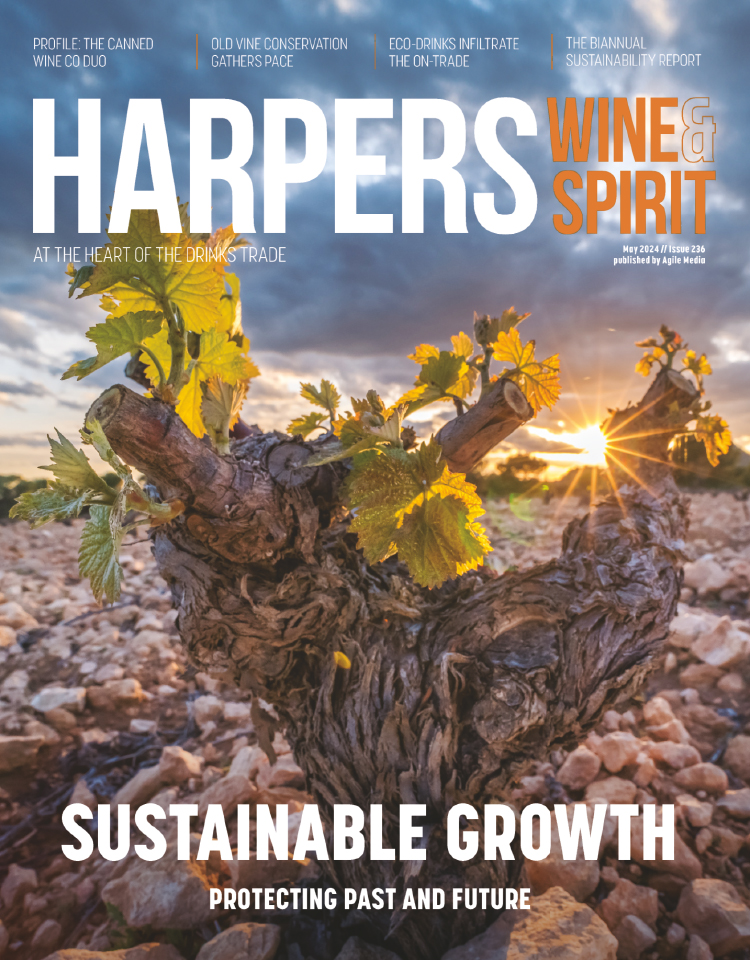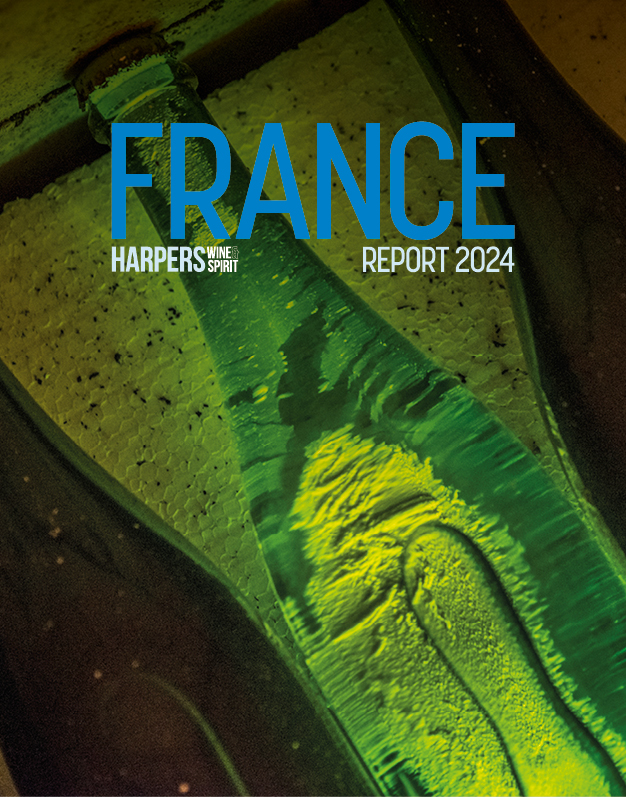
Jerry Lockspeiser: The Covid experience - does diversification deliver business resilience?
One of the pleasures of writing an opinion piece for Harpers is keeping abreast of business issues. This comes partly through experience and discussion, partly through reading what others are writing.
In the era BC (Before Covid) I kept up to date through wine and alcohol trade websites, blogs, and publications, along with sources covering more general business and societal issues. Now we are living with Covid the sources of information and opinion are much wider, and what is covered moves at a phenomenal pace.
Within this maelstrom of news, facts and opinion, the email bulletins from Wine Intelligence stand out for their timeliness, quality, and relevance. The articles unfailingly throw light on an interesting or important issue from across the global wine world. Juan Park’s recent piece “Black Swans and white wine: Planning in an uncertain world” is a good example.
Juan’s article was subtitled “How diversifying your business plan helps prevent unpredictable events disrupting your entire business”. After recognising the myriad ways businesses of all types are rightly changing from their normal trading to anything that will earn cash in an effort to survive – “Catering companies are now delivering to homes, bars have become food shops, fashion companies are doing hand sanitizers, clothing manufacturers are distributing masks” – he makes his key point:
“But for the long term, and in order to minimise risks, it pays to have a breadth of channels and locations to sell wine, just as it pays to understand the markets and use trend data to know where we should be. Hedging your bets in the long term allows you to be faster at adjusting in the short term – if you already had some expertise in online retail, for example, you will be faster to respond to a channel shift. And then it pays.”
This sounds sensible, but is it right?
There are two different but related issues here.
First, planning for the unpredictable, a huge Black Swan event like Covid-19. Other such events might include the nation being involved in full scale international war, complete breakdown of the digital world, or the immediate arrival of the worst predictions of climate change.
Second, planning within the “normal” parameters of societal and business life, where predictable risks can be imagined and hedged against. This kind of scenario planning should be an integral part of every business. It encompasses a multitude of risks, from avoiding dependence on a key person, to withdrawal of credit, loss of supply, over dependence on key customers, alteration in tax, legislation and governance rules, and of course fundamental shifts in what consumers buy, and where and how they buy it.
Contrary to Juan’s perspective, the received wisdom about how to achieve success in business is focus, focus, focus. Identify your vision and purpose, know your USP, develop it, hone it, and become the best at it. For example, this might involve developing a market busting, thought leading, innovative brand. Or it might be having the most appealing range and best service to a defined market segment. But it almost certainly is not both of those together.
My own business experience has largely born out the benefits of focus, focus, focus. It has definitely shown the weakness of being too thinly spread, trying to do too many things – especially too many things at the same time – and being all things to all people. If building a distinctive, proudly profitable business is the aim, then most of the time that does not work.
My concern with Juan’s view, that spreading business widely is the way to be ready for the next Black Swan, is that such a strategy will dampen success in the long periods when there is no Black Swan – which is most of the time, as Black Swans are inherently rare.
The challenge is how to follow a focus strategy that maximises success when there are no Black Swans, while also creating a resilient business ready for the next.
Suddenly having no customers, as happened to on premise businesses and their suppliers all over the world, is like sitting on the edge of a cliff. The human cost to those involved is extreme. Clearly any business whose revenue stops dead in its tracks overnight faces a massive shock. Whether it is life threatening or not depends on its access to cash. This may be cash from retained profits built up over the years, support from equity investors, credit lines, grace from suppliers, support from customers, or other innovative ways to enable staying alive, many of which we are seeing in the response to Covid-19.
Larger and older companies are likely to have more resources available than small and new. Having boot strapped my own first business from nothing in 1985 to a small something by the time of the recession in the early 1990s, I had sleepless nights as I watched five years retained profit being wiped out in six months. Almost all our team were laid off and bankruptcy was avoided by a whisker.
When I built my next company, I prioritised retaining enough cash from profits to cover two years overheads without a single pound of revenue. I reasoned that with two years runway I would have time to adjust the business to whatever came down the line without going bust. Only then did I stop having nightmares about the first business.
This is the simple answer to the next Black Swan: build a sufficiently profitable business from your focus activity to generate cash reserves that cover a long runway of costs. Or line up other secure sources of cash that can be accessed for the same purpose.
This is simple to say, but hard to do in sectors with historically low profit margins, such as the on-trade. This leads to a consequential point. If the on trade, and supplying wine to it, is for the most part so unprofitable, perhaps it is time to rethink the business model completely. Rather than suggesting marginally profitable businesses expand into additional sectors to spread their bets, perhaps time would be better spent figuring out how to become more profitable in their focus area.
Jerry Lockspeiser donates his fee for this column to The Millione Foundation which supports education and social justice in Sierra Leone
Keywords:
- Business
- Wine Intelligence
- Covid-19
- The Millione Foundation
- Juan Park
- Black Swans and white wine
- planning diversification






